Hadrian’s Wall and a Journey Through Symbols: Educational and Scientific Experiences for Integrating Families into Museums (Heba Hassan, Egypt, ITP 2024)
Written by Dr Heba Hassan Amer, Curator & Head of Education, Alexandria National Museum (Egypt, ITP 2024)
When I joined the International Training Programme at the British Museum, I did not realize that this experience would open new horizons for me on both practical and academic levels. Today, I can say that this experience has profoundly influenced my understanding of how to sustain cultural heritage and how museums can become effective educational centers for families.
I have gained many new ideas that I am eager to implement at the Alexandria National Museum. One of the concepts that impressed me the most was involving the entire family in a single workshop, rather than focusing solely on workshops for children. This approach enhances intergenerational interaction and creates a shared educational experience that combines fun and learning for all family members.
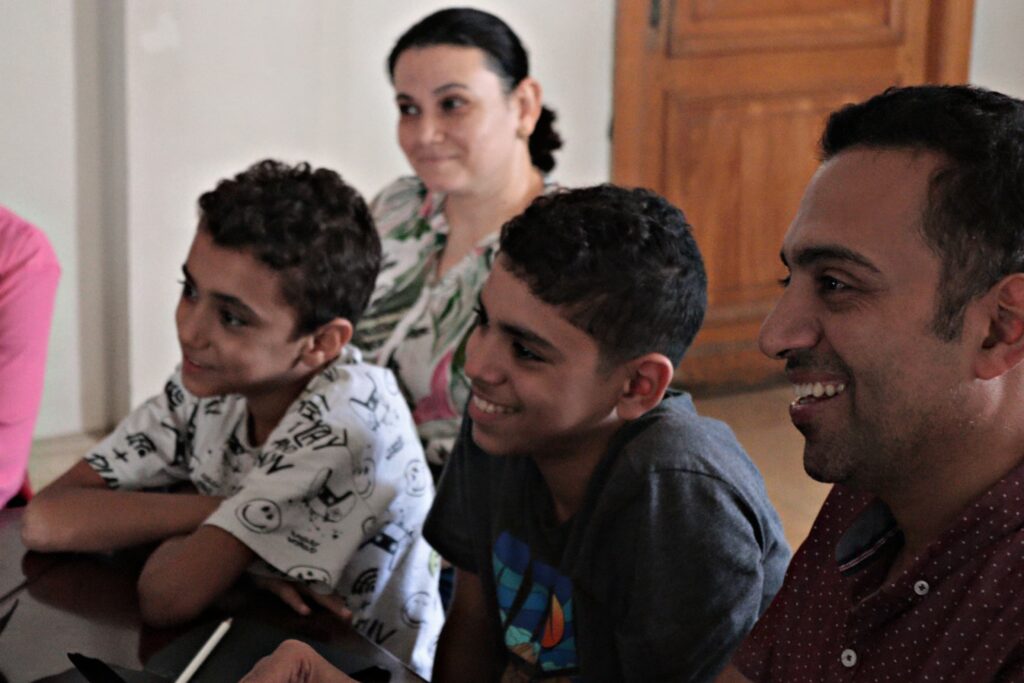
The first of these workshops that I organized with my colleagues in the educational department was the Journey Through Symbols workshop, which was held in celebration of the 202nd anniversary of Egyptology and the deciphering of the Rosetta Stone. This workshop was a unique experience aimed at integrating children and their parents in an interactive learning environment focused on the history of the Rosetta Stone and the three languages inscribed on it.
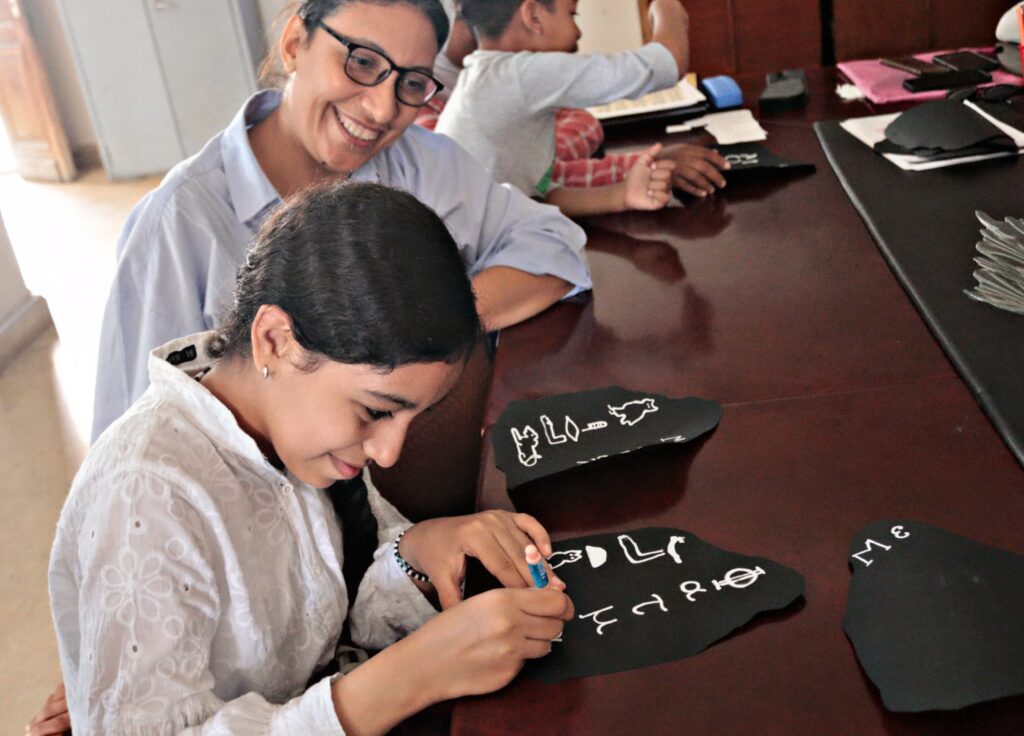
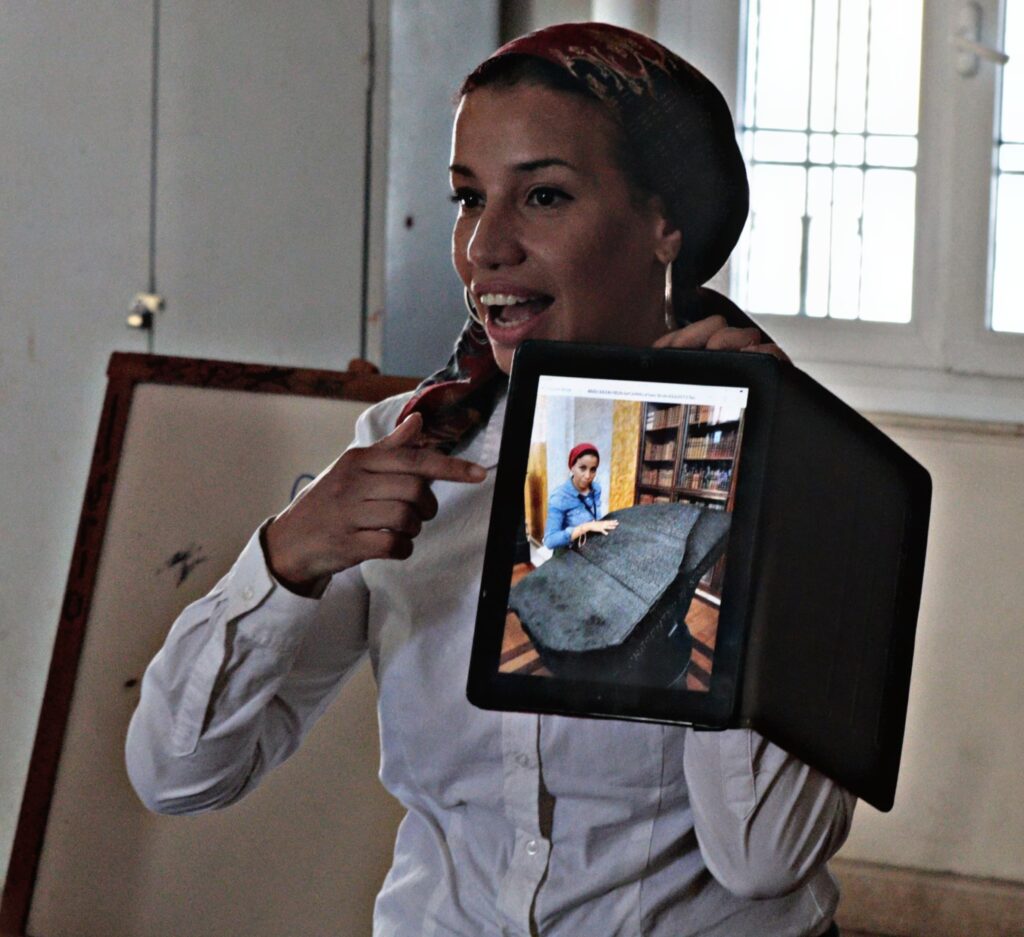
The experience of the International Training Programme allowed me to gain a deeper understanding of the Rosetta Stone, its significance, and the educational role it plays. I also saw how these ideas can be applied in local museums, where various ways exist to make heritage more accessible to the public, especially for children and families.
Through a variety of activities, such as creating models of ancient symbols and writing in hieroglyphics and demotic scripts, we successfully created a vibrant educational atmosphere. The programme also included interactive games like the ‘code game,’ which added an element of fun and excitement to the experience.
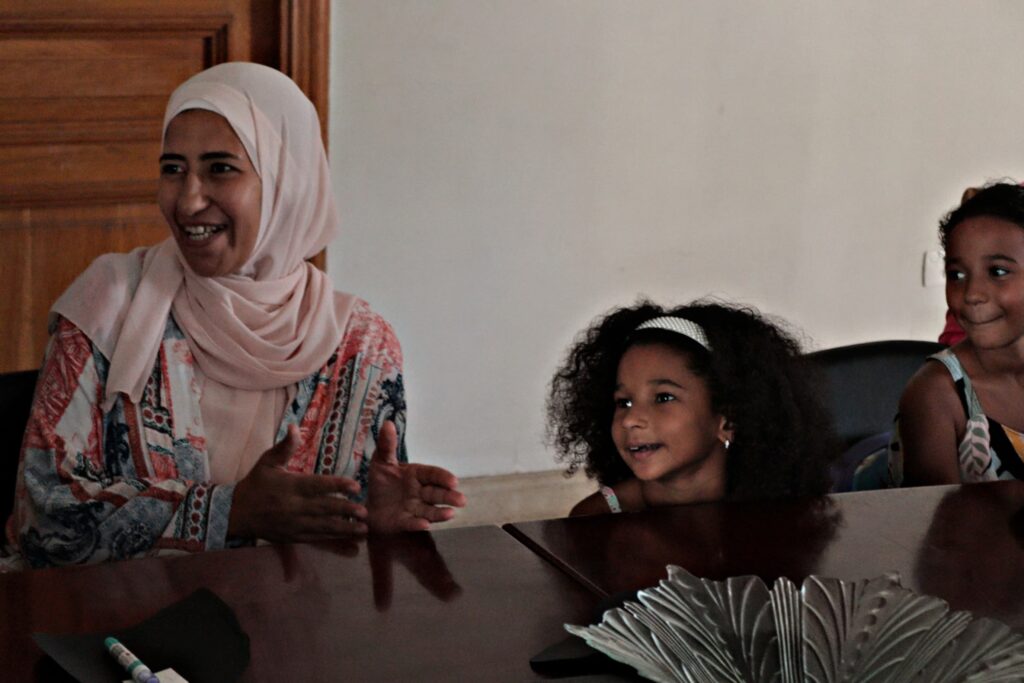
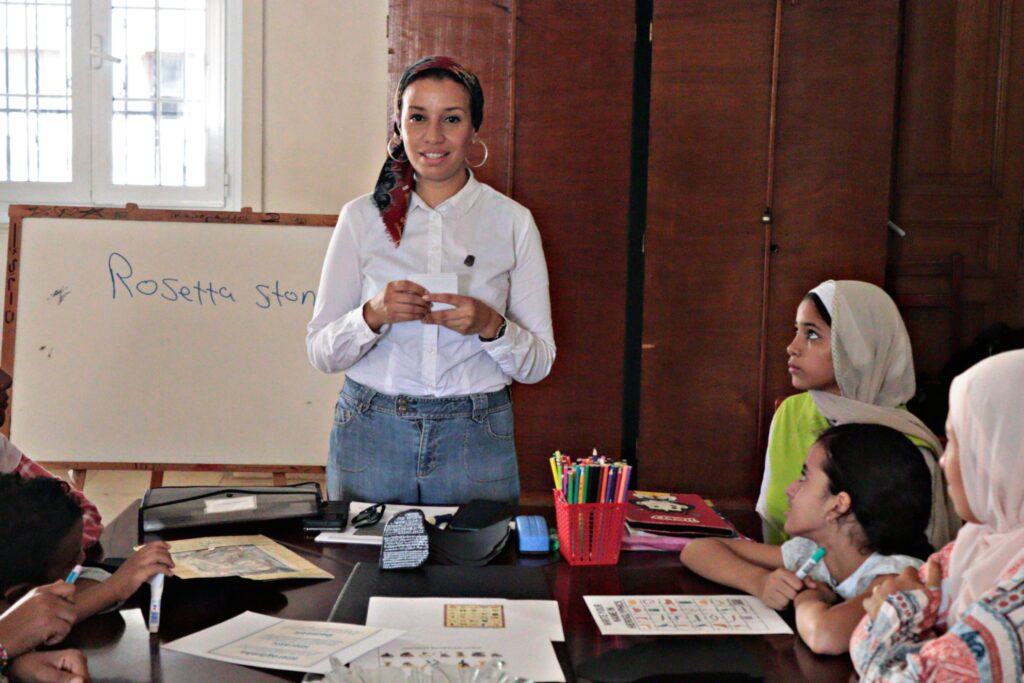
The response from families was extremely positive, with everyone expressing enthusiasm for participating and learning together. This workshop demonstrated the importance of engaging families in cultural and educational activities and opened new avenues for thinking about how to design future workshops that enhance intergenerational communication and deepen understanding of cultural heritage.
From an academic perspective, my participation in the Greek and Roman History Seminar at Kafr El Sheikh University with my research titled “Hadrian’s Wall: A Perspective Between the Past and Present” was a significant milestone in my career. The wall played a vital role in the past as a defensive barrier for the Roman Empire, and today it is regarded as an important archaeological site that contributes to understanding the relationships and boundaries of ancient civilizations.
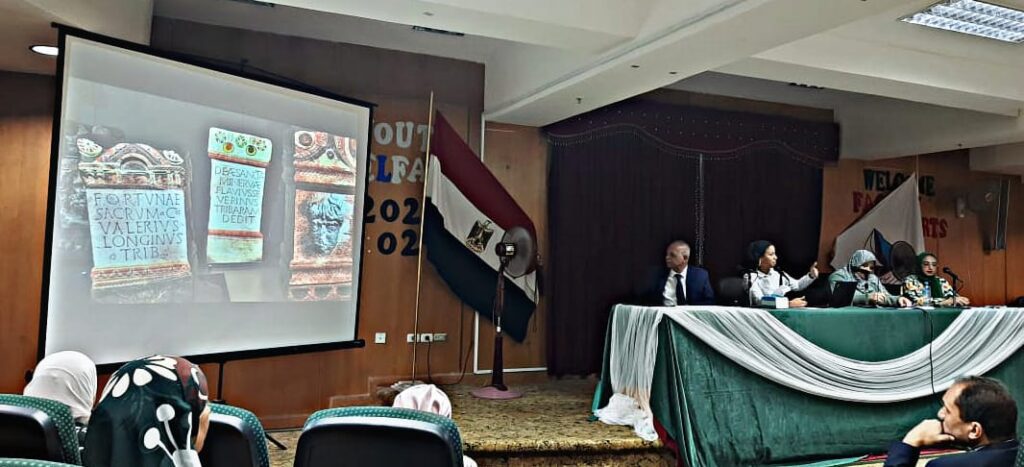
During my partner placement in Newcastle, I had the opportunity to visit Hadrian’s Wall and learn about the efforts made to preserve it as part of the world heritage. This interaction between the present and the past made me realize the importance of sustaining archaeological sites and how these sites can continue to provide value for future generations. I also saw how these ideas can be applied in local museums, where various ways exist to make heritage more accessible to the public, especially for children and families.
